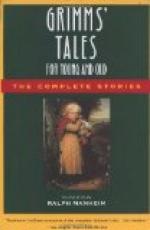In due time the goslin appeared, and Billy fed it from his own scanty fare, taking it with him when he was herding. By Christmas it had become a large fat goose, and its owner was offered half-a-crown for it. But he had a higher ambition for it than this, and he was not to be tempted from his purpose by the prospect of present gain. The following spring he set her on twelve eggs, which she had herself produced, and by and by twelve goslins appeared. Our hero was now obliged to exercise some ingenuity in finding food for so large a family of dependents; but he accomplished his end by bartering away three of them, in exchange for permission that the remainder should feed in his master’s yard, until they should be old enough to pick up their subsistence in company with their mother and the cow upon the common, and indulge in swimming there in the abundant pools. At the proper time, he sold the young geese for the largest sum he had ever seen in his life; for, though to have kept some of them might have proved an additional source of profit, he knew that he had only accommodation for one to hatch. A portion of his money he gave to his mother, but he placed a one-pound note in the safe-keeping of his kind mistress, and when spring again came round, he bought with it a year-old heifer, which he sent to graze on the mountains, paying with it a small sum, the remnant of his money, which he had reserved for this purpose. Old goosy again presented him with young ones, the sale of which enabled him to purchase fodder for his cow, when she was sent home at the end of the season. And now he built a little shed for her with fir sticks from the bog and heather sods, so that perhaps she was better cared for than many a rich man’s cow. We may be pretty sure, however, that Billy never neglected his master’s business to attend to his own private affairs, or he and his wife would not have encouraged him in his plans, as they evidently did. It is not worth while to follow the fortunes of the prudent industrious little fellow step by step, or to declare precisely how he dealt in cows and geese. It may be enough to say, that at the end of six years he quitted servitude a richer man than ever his father had been; on which occasion he presented the venerable goose to his mother, to whose necessities and comforts he had for some time constantly contributed. So soon as he was thoroughly established in the world, he married; but not till he had provided a neat cottage for his parent, who had the happiness to enjoy for many years the prosperity of her son, and who lived to see the poor cow-boy a man among the most respected and esteemed in his native county.
‘And so, you see,’ said the old apple-woman in conclusion, ’it is a foolish thing to despise small beginnings. Thrue as I am telling it ye, this is how Mr Carter got the name of Billy Egg, though, d’ye see, he never was called Billy Goose—no, never.’




